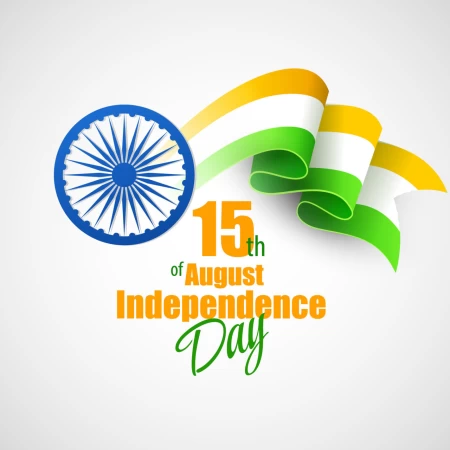
Certainly, here is some comprehensive information about the 15th of August, known as Independence Day in India:
Independence Day in India - 15th August:
1. Historical Significance:
Independence Day in India is celebrated annually on the 15th of August to commemorate the nation's independence from British colonial rule. On this day in 1947, India gained freedom after a long struggle against British imperialism, marking a significant milestone in the country's history.
2. Struggle for Freedom:
India's fight for independence was marked by nonviolent protests, civil disobedience, and the leadership of prominent figures like Mahatma Gandhi, Jawaharlal Nehru, Sardar Patel, Subhas Chandra Bose, and many others. The journey towards independence was characterized by sacrifices, demonstrations, and a united spirit among Indians from all walks of life.
3. Midnight Speech by Jawaharlal Nehru:
The historic moment of India's independence was marked by Jawaharlal Nehru's famous speech, known as the "Tryst with Destiny." At the stroke of midnight on August 15, 1947, Nehru, who later became India's first Prime Minister, addressed the nation, conveying the joy and responsibility that came with the newfound freedom.
4. Celebrations and Festivities:
Independence Day is celebrated with great enthusiasm across the country. The celebrations usually begin with the raising of the Indian national flag, accompanied by the singing of the national anthem, "Jana Gana Mana." Parades, cultural events, and flag hoisting ceremonies take place in schools, government offices, and public spaces.
5. Red Fort Ceremony:
The most iconic Independence Day event takes place at the Red Fort in Delhi, where the Prime Minister of India hoists the national flag and addresses the nation. The event is attended by thousands of citizens and is broadcasted live on television and radio.
6. Patriotism and Unity:
Independence Day is a time to celebrate the rich diversity of India and to reflect on the unity that binds the nation together. It is a day to honor the contributions of freedom fighters and to renew the commitment to preserving the democratic values and sovereignty of the nation.
7. Cultural Programs and Tributes:
Schools, colleges, and communities organize cultural programs, patriotic songs, and performances that pay homage to the struggle for freedom. The tricolor, representing the saffron for courage, white for peace, and green for growth, is prominently displayed during these celebrations.
8. Public and Private Celebrations:
Independence Day is observed as a national holiday, giving people the opportunity to participate in public events or spend time with their families and friends. Many individuals also use this occasion to express their love for the country through social media, art, and creative tributes.
9. Importance of Unity:
Independence Day serves as a reminder of the sacrifices made by countless individuals to secure India's freedom. It emphasizes the importance of unity, diversity, and a shared commitment to building a progressive and inclusive nation.
10. Reflecting on Progress:
While celebrating India's achievements since gaining independence, Independence Day is also a time to reflect on the challenges that the country faces and the ongoing efforts to promote growth, development, and equality.
Independence Day is not just a celebration of freedom; it is a testament to the enduring spirit of India and its people's unwavering determination to shape a brighter future.